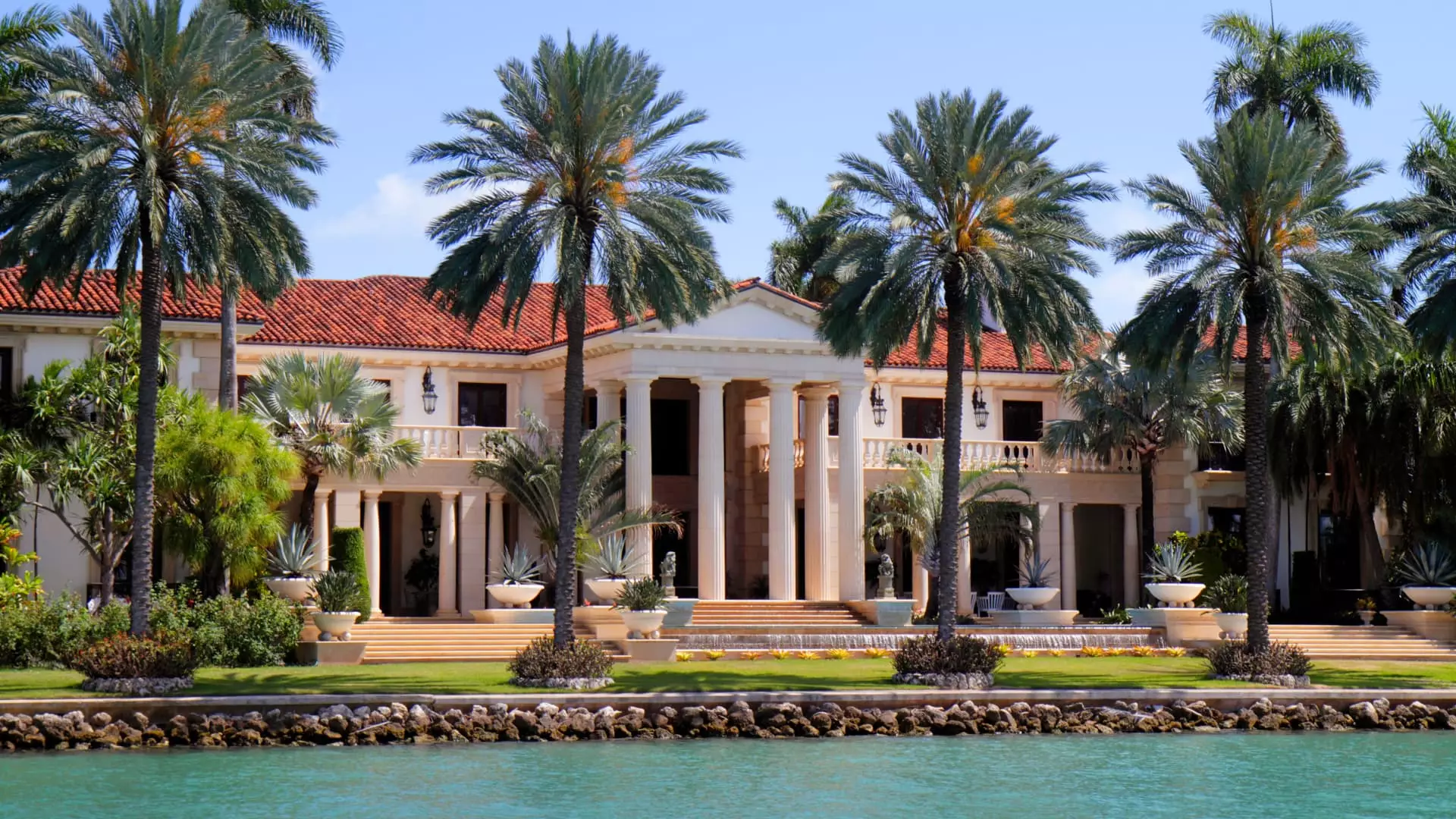The statistics surrounding wealth accumulation in the United States are startling. In a landscape where many Americans grapple with daily financial pressures, a recent report highlights an extraordinary surge in multimillionaires—individuals possessing assets exceeding $10 million. In 2024 alone, this demographic grew by 5.2% in North America, outpacing global trends, which saw an increase of 4.4%. This exponential rise reflects not just an economic phenomenon but a haunting reality of income inequality stretching across the nation.
Disparity at Its Worst: America’s Super Rich Dominate
The fact that nearly 40% of the world’s high-net-worth individuals reside in the U.S. is both impressive and disconcerting. This figure accentuates the growing divide between economic classes, with super-rich Americans increasingly gathering a lion’s share of wealth. What is particularly unsettling is that this accumulation is almost double that of China, the next closest nation. Such disparity reveals a systemic issue—a capitalistic framework that rewards the already affluent while leaving countless others behind.
Market Gains Amid Economic Strain
While U.S. financial markets exhibited remarkable growth in 2024—thanks, in part, to the booming technology sector and rebounding equities—the average middle-class American faces a different narrative. The S&P 500 rose by an impressive 23%, and the technology-laden Nasdaq jumped a staggering 29%. For the top-tier investors, these numbers are a cause for celebration. Yet, the reality for everyday citizens is marked by inflation worries and stagnant wages, which amplify economic strain. The triumphant narratives of Wall Street seem worlds apart from the struggles of those attempting to remain afloat in an increasingly expensive marketplace.
The Acceleration of Billionaire Wealth and Power
Furthering this alarming trend, a report from Oxfam indicates that approximately 204 new billionaires were created in just one year. This rapid accumulation of wealth is concerning not only for its sheer volume but also for the heightened influence that these extremely wealthy individuals wield over politics and society. As we find ourselves in what some are calling “the era of the billionaire,” it’s critical to reflect on the ramifications this influx of wealth has on our democratic processes and social welfare. The consolidation of wealth not only distorts economic equity but also raises ethical questions about the power bestowed upon a select few.
Middle-Class Americans: Caught in the Crossfire
As multimillionaires and billionaires continue to thrive, the middle-class demographic endures increasing financial pressure. Many Americans report declining standards of living as inflation gnaws at savings and wages fail to keep pace with rising costs. The juxtaposition of the affluent enjoying unprecedented gains against the backdrop of a struggling working class illustrates a troubling portrait of socioeconomic failure. These trends pose a critical question: what does it mean for a society that allows wealth to flow so disproportionately?
The stark reality presented by these reports serves as a warning sign. It showcases an urgent need for policy reforms that address both income inequality and the economic struggles faced by the average American. The path forward demands a reconsideration of how wealth is generated and distributed within our society, lest we continue down a path that erodes the foundational principles of equity and opportunity for all.

Leave a Reply